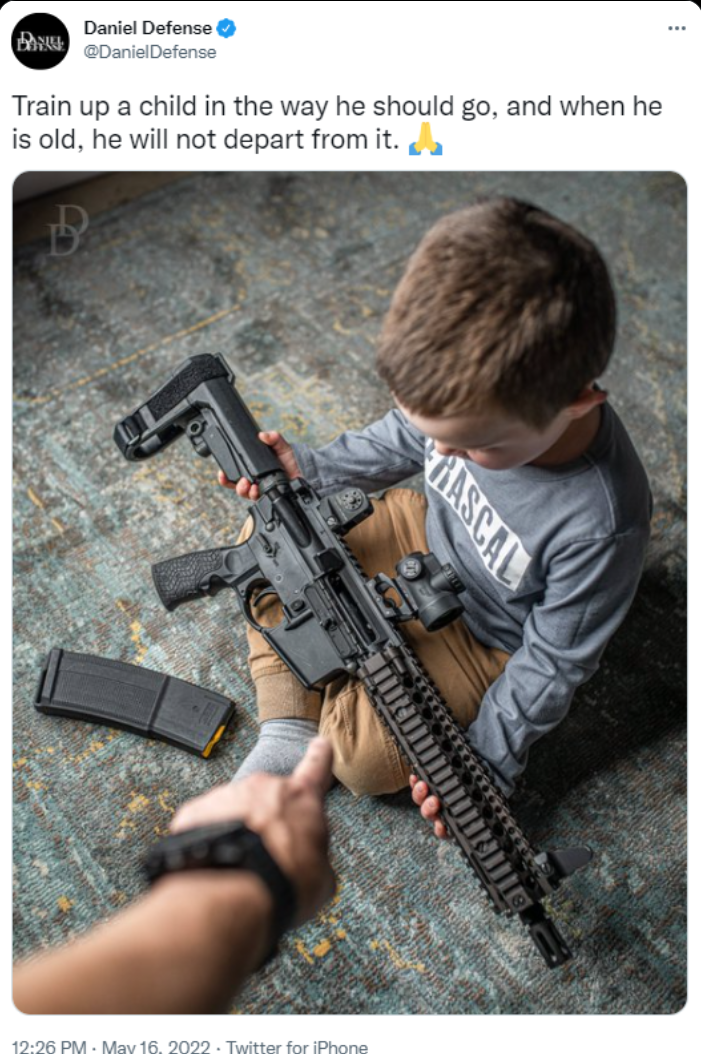I remember the first essay I ever wrote for The Atlantic. Four years ago, they reached out to me and asked me to write about American gun culture from a conservative perspective. I took the responsibility seriously. I knew most readers disagreed with me vehemently, and while I didn’t expect them to necessarily change their minds, I did want them to understand why my family owns guns and what “gun culture” meant to us.
The story began with the first time we faced a threat at our own house. A man blocked our driveway with his car and walked up to Nancy and our kids while they were playing outside. He demanded to see me. I was away, at work.
It was a terrifying moment. Nancy didn’t have her phone. We owned guns, but they were inside. Even if she could dial 911, the police were likely 15 or 20 minutes away. As I told Atlantic readers, Nancy was cleverly able to defuse the situation, but just when we thought we might be overreacting to the incident, we learned the same man was seen, earlier in the day, slowly driving through the parking lot of our kids’ school.
That incident motivated Nancy to get more serious about her personal defense. She’s an abuse survivor. An ex-boyfriend almost choked her to death in college. And the combination of past attacks and present threats made her not just walk into a gun store to find the right handgun to carry, it motivated her to get serious training. She spent day after day at the range taking classes from an expert in self-defense.
Her view was simple: With gun rights come grave gun responsibilities. One ought not casually own or carry a firearm.
My piece described a gun culture marked by kindness, empathy, and sobriety. Nancy met people who understood her concern, patiently helped her learn how to defend herself, and at every turn taught her safety, safety, and more safety. That was the “gun culture” I wanted Atlantic readers to understand.
But that culture is under threat, and I’m not talking about the threat of gun control. Few cultural and political movements are more successful and politically dominant than America’s gun rights movement.
Go to the Rand Corporation’s state firearms law navigator, and you can track the extraordinary expansion of gun rights in the United States year-by-year. Combine state laws with Supreme Court precedent, and it’s hard to think of a time when Americans enjoyed a greater degree of personal liberty to own or carry firearms.
No, the threat to America’s gun culture comes from the gun rights movement itself. The threat is gun idolatry, a form of gun fetish that’s fundamentally aggressive, grotesquely irresponsible, and potentially destabilizing to American democracy. And it’s become so prevalent that I would not—I could not—write the same piece for The Atlantic again.
What is a gun fetish? It’s a concept that’s tough to define, but easy to observe. When a leading candidate for Senate runs on a platform that’s “pro-God, pro-Gun, and pro-Trump,” then guns (and Trump) are elevated far above their proper place in American life. The same goes for popular t-shirts and signs that declare a person “pro-life, pro-God, and pro-gun.”
We see the gun fetish when a member of Congress appears on television with crossed AR-15s behind her head. Or when another member of Congress raffles off a .50 caliber sniper rifle. You definitely see it when a third member of Congress posts a Christmas message that looks like this:
The gun fetish rears its head when politicians pose with AR-15s in their campaign posters, or when a powerful senator makes “machine-gun bacon” to demonstrate just how much he loves the Second Amendment.
It’s certainly not the case every time a politician publicly shoots a gun that they’re exhibiting a gun fetish, but the sheer prevalence of the open display of firearms (and not just any firearm, but the AR-15 specifically) illustrates that something has changed.
There is nothing wrong with building and marketing high-quality firearms, but this mixture of scripture and weapons from Daniel Defense, the company that made the rifles used by the Uvalde shooter, is disturbing:

Spend much time at gun shows or at gun shops, and you’ll quickly become familiar with something called the “tactical” or “black gun” lifestyle, where civilians intentionally equip themselves in gear designed for the “daily gunfight.” It’s often a form of elaborate special forces cosplay, except the weapons (and sometimes the body armor) are very real.
Something has changed in the streets as well. It’s now common to see men and women armed to the teeth, open-carrying during anti-lockdown protests and even outside public officials’ homes. This is when the gun is used to menace and intimidate. It’s displayed not as a matter of defense but rather as an open act of defiance. It’s meant to make people uncomfortable. It’s meant to make them feel unsafe.
This transition from defense to defiance can destabilize our democracy. The concept of self-defense is rooted in a high view of human life. In his Second Treatise of Civil Government, John Locke described a “fundamental law of nature” (his description of the “will of God”) that man be “preserved as much as possible” yet “when all cannot be preserved, the safety of the innocent is to be preferred.”
Indeed, scripture makes multiple allowances for self-defense, in both the Old and New Testaments. While I respect Christian pacifism, I simply don’t see it required by the biblical text. My own view is that the refusal to protect innocent life can constitute a grave moral wrong. If a violent man came after my family, and I did not do everything in my power to stop his attack—even if it meant killing him to save my wife and kids—then I would have failed a profound obligation as a husband and father.
Defiance is different. It’s rooted in the will to power. It is designed to implant fear, not to save lives but to exert control. It contradicts a core value of a classically-liberal society, that change comes through courts and the ballot box, not through intimidation and fear.
It’s even more disturbing to see that spirit of armed defiance so closely correlated with the religious right. The decision of Christians to provoke their fellow citizens into feeling palpable, physical fear of armed violence is deliberately malicious and cruel.
If you’ve read me at all, you know that I’m constantly talking about the relationship between rights and responsibilities. If, as Thomas Jefferson wrote in the Declaration of Independence, governments are “instituted among men” to secure our unalienable rights, then it is our responsibility to exercise those rights for a virtuous purpose. Otherwise, our constitutional experiment may fail.
In his famous letter to the Massachusetts Militia, John Adams issued a timeless warning. Liberty is inseparable from virtue, and our vices can break the Constitution itself:
Because We have no Government armed with Power capable of contending with human Passions unbridled by morality and Religion. Avarice, Ambition, Revenge or Galantry, would break the strongest Cords of our Constitution as a Whale goes through a Net.
The gun culture I grew up with placed its responsibilities on par with its liberty. It understood the true purpose of owning a gun—that it was designed to secure and protect your family, not to frighten and intimidate your neighbors. I defended it because I believed I was defending something good. Here’s how I closed my Atlantic essay four short years ago:
Because of the threats against my family—and because I don’t want to be dependent on a sometimes shockingly incompetent government for my family’s security—I carry a weapon. My wife does as well. We’re not scared. We’re prepared, and that sense of preparation is contagious. Confidence is contagious. People want to be empowered. That’s how gun culture is built. Not by the NRA and not by Congress, but by gun owners, one free citizen at a time.
I don’t feel nearly so confident about those words today. That culture is being consumed from the inside-out. Yes, there are still millions of deeply-responsible gun-owners who focus on their responsibilities even more than their rights, but the idolatrous fringe is fringe no longer. They bear arms with religious intensity, and in their zeal for their weapons, they send the message that their identity and their power are defined by the guns they love.
One more thing …
In this week’s Good Faith podcast, Curtis and I dive even deeper into the topic of Christians and guns. He’s more progressive on gun control. I’m more conservative. We hash out our differences, and we also discuss the challenge of embracing humility and complexity in a topic that is so profoundly emotional and contentious. The comments section is already getting interesting. Give the podcast a listen, and please share your thoughts.
One last thing …
I’m going to end with another Kristene DiMarco song from her incredible new album. This one is particularly appropriate for a time when we’re all prone to serve our political idols. It’s a beautiful, meaningful song. Enjoy:







Please note that we at The Dispatch hold ourselves, our work, and our commenters to a higher standard than other places on the internet. We welcome comments that foster genuine debate or discussion—including comments critical of us or our work—but responses that include ad hominem attacks on fellow Dispatch members or are intended to stoke fear and anger may be moderated.
With your membership, you only have the ability to comment on The Morning Dispatch articles. Consider upgrading to join the conversation everywhere.